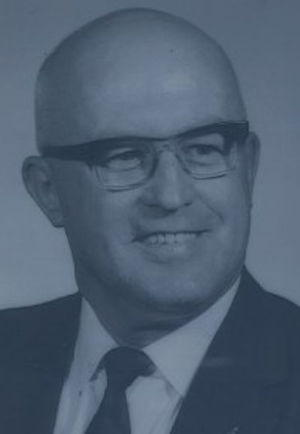In 1939, the Brown family moved to Jamestown and Brown worked for GLF Feed Company. He became a member of the Chautauqua County Football Officials Association, the IAABO Basketball Association and the Chautauqua County Baseball Association. During those basketball seasons, he was working five to seven games weekly at either high schools or the YMCA. In addition, he became well-known by competing in baseball around New York State and Western Pennsylvania.
Brown was able to expand his officiating to the college level at places as St. Bonaventure, Fredonia State, Edinboro, Allegheny, Clarion, Gannon and the University of Buffalo. As an official, Brown was highly-respected and always stressed that clean play and sportsmanship always came first.
Brown was an official that football coaches would want for the big games such as Jamestown-Dunkirk, Southwestern-Falconer and Panama-Sherman. That was because when Brown was officiating any sport, the players and coaches knew they would get an outstanding job. He retired from officiating after 35 years.
During the war years, Brown was a catcher and coach of the Steel Partitions Bombers, who didn't lose a game. It was during that era when baseball was well-attended in the City Leagues of Jamestown. Brown's son, Richard, was the batboy and on Thursday nights the Bombers would travel by truck to Corry and were known as the Corry Bombers. Then on Saturday afternoons the Bombers played at the Chautauqua Institution as the Chautauqua Bombers.
Thanks to Brown and another Hall of Fame inductee, Joe Nagle, the Bombers were kept at a very high level for 10 to 15 years. Such players as Walt Brown (no relation), Jim Rogers, Warren Mee, Ralph Mee, Les James, Lefty Pratt and Steve Dankovich compromised the players in the early years. Later some of the standouts were Bob and Joe Bender, Don Nagle, brother Bob Brown, Roger DuBois, Ellis Norton, Frank Walker, Bob Fredo, Phil Young and Dan Sundlov.
Brown also would compete with the Bombers on weekends when they would go downstate to play the Ithaca American Legion or go to Cleveland for tournaments. They were successful in most of their games. Probably, the biggest accomplishment of the Bombers was winning two New York State semi-pro tournaments, thus, enabling them to enter the national tournament in Wichita, Kansas.
Brown retired from playing in the early 1950s and started managing Little League and helping organize Jamestown's first Babe Ruth League. He coached the Elks in the Little League's first season at Baker Street Field and coached his son, Don, who later coached NBA player John Wallace of the New York Knicks. Later, he managed the Optimists for four years at the Fluvanna Field in the Jamestown Babe Ruth League. Another son, Bill, was a catcher like his dad, and was able to take teams to the state level.
Brown was commissioner of semi-pro baseball in New York State in 1949 plus president of the IAABO and the Chautauqua County Football Association. In addition, he was secretary for 16 years of both the IAABO and the Chautauqua County Football Association. He also assisted in selecting Section 6 basketball, football and baseball officials for playoff games.

























